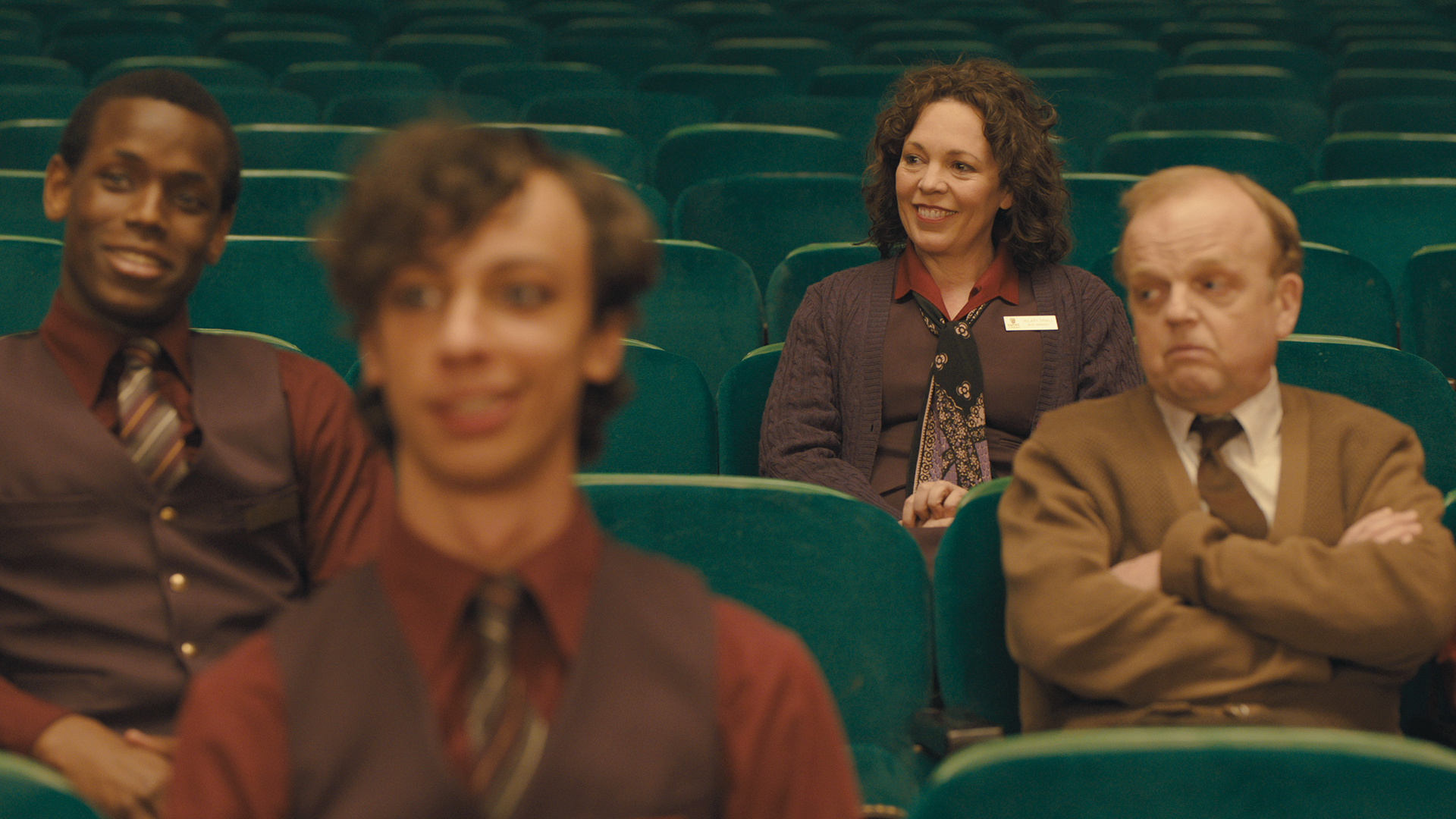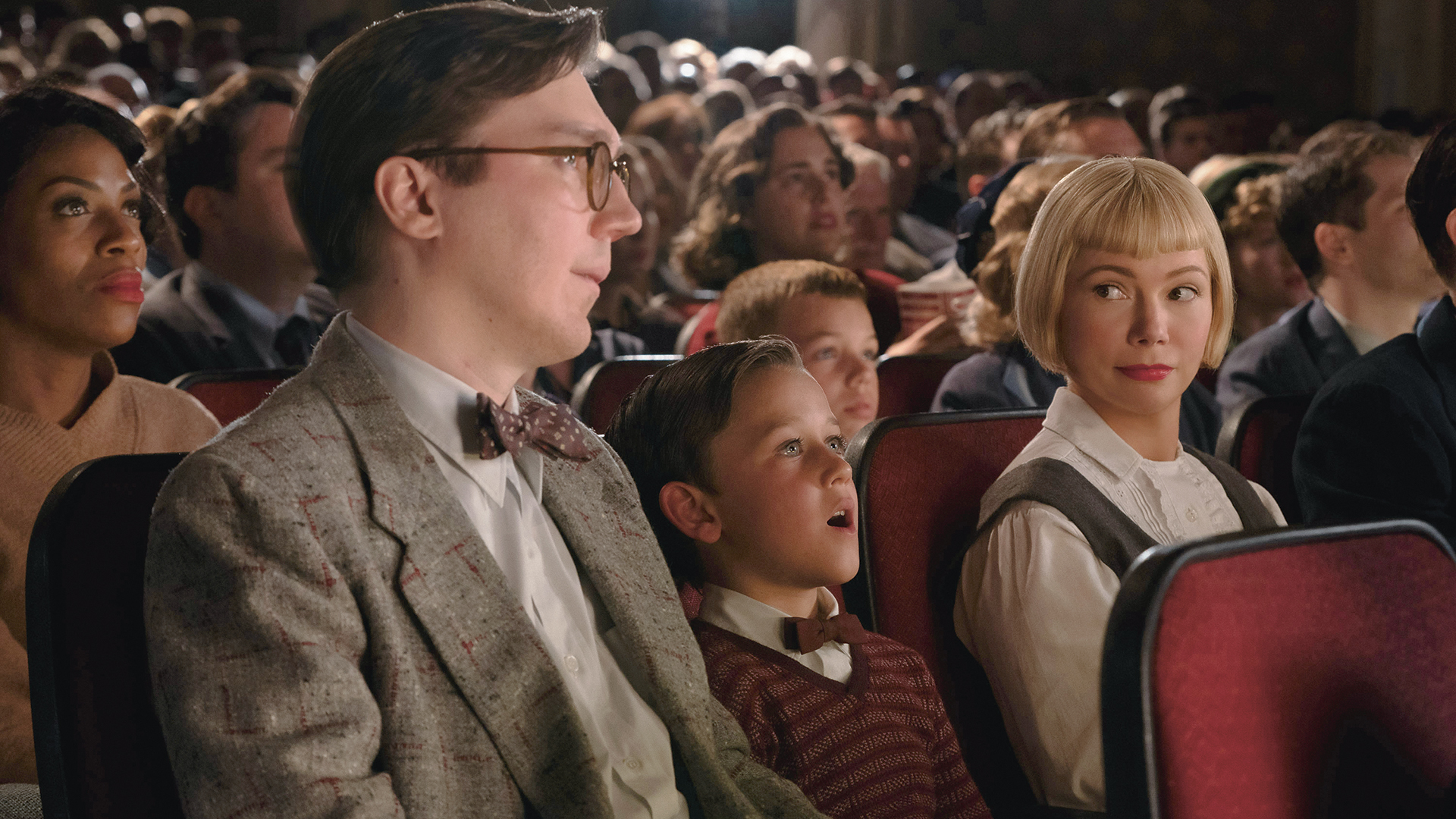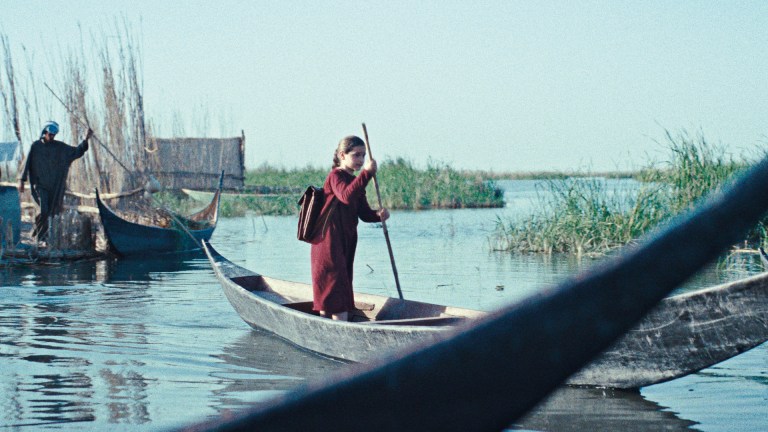“Movies are dreams, doll, that you never forget,” says a wide-eyed Michelle Williams as Mitzi Fabelman in Steven Spielberg’s The Fabelmans, an autobiographical drama that sees the Oscar-nominated actress play the screen version of the director’s mother. In this scene – which opens the film – mother and father (Burt, played by Paul Dano) are taking their son, Sammy (played as a kid by Mateo Zoryan and as a teen by Gabriel Labelle) to the cinema for the very first time. Terrified, the kid hesitates. “You just wait and see,” reassures his mother, right in her hunch the boy would love what was to come.
The Fabelmans is the latest addition to the love-letter-to-cinema trope, a subgenre dedicated to often romantic, rose-tinted odes to filmmaking and the rituals of cinemagoing. Spielberg, at 76, has directed more than 30 films, many of which are now deeply embedded in our modern understanding of cinema. Think ET, Jaws, A.I. Artificial Intelligence and countless more. Although no stranger to exploring his familial dynamics onscreen (his parents’ divorce is almost a trope of its own), Spielberg comes to The Fabelmans with the lulling nostalgia of maturity, a filmmaker who understands that more lies behind than ahead. This placidity envelops the film in tangible gratitude for that day in early childhood when a boy fell in love with cinema. It is saccharine yet earnest, the culmination of a life processed through the viewfinder.
Damien Chazelle’s Babylon, another love letter to cinema gracing screens this January, is a direct counterpoint to The Fabelmans as it comes from the mind of a director who, although lauded, has more to prove.
Chazelle, now on his fifth film, has devoted half of his filmography to the mythology of Hollywood. La La Land, his sophomore feature, took a couple through the highs and lows of chasing dreams in Los Angeles in a musical that is now burnt in cinema history thanks to the Oscar fumbling of 2017 when the director took to the stage to thank voters for his Best Picture award at the ripe age of 32, only to realise presenters Faye Dunaway and Warren Beatty had called out the wrong film.
- Superheroes! Sequels! Surprises? What’s coming to your cinema in 2023
- For your consideration – the potential 2023 Oscar winners
Highly publicised missteps take centre stage in Babylon, which chronicles the pivotal time in the 1920s when silent cinema became a memory in the wake of “talkies” arriving. It is an opulent bacchanal ruled by excess, starring arguably one of our last true movie stars, Brad Pitt, plus A-lister Margot Robbie and newcomer Diego Calva, three dreamers paving differing yet parallel paths in the city of angels. The film stretches over three long hours as it dwells on matters of pleasure and legacy, denuding the idea of cinema until it lays fully exposed, a voyeuristic approach that has critics and audiences split.

Somewhere between the nostalgic platitude of The Fabelmans and the frenzied hyperbole of Babylon lies Sam Mendes’s subdued drama Empire of Light, less a love letter to cinema than (an immensely flawed) reflection on mental health and the racial politics of ’80s Britain. Still, the film, which takes place mostly inside a regal cinema by the English coast, dedicates a chunk of its runtime to the beauty within the mechanics of projection. “That little beam of light is escape,” says one of the film’s protagonists, Stephen (Micheal Ward), his feelings echoed by the projectionist (Toby Jones), who swoons while explaining the ins and outs of turning still images into moving ones: “It creates an illusion of movement. An illusion of life.”









